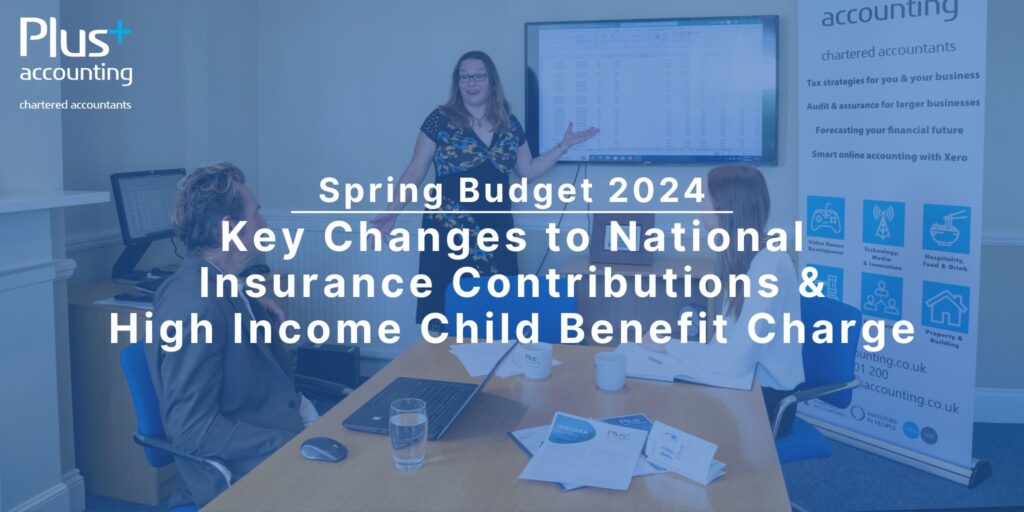Further changes announced in the Spring Budget include two key areas in National Insurance Contributions (NIC) and the High Income Child Benefit Charge (HICBC). In this blog, we’ll explore the details of these changes and how they might affect you.
National Insurance Cut
Employee National Insurance Rate Reduction:
One of the headline changes is the reduction in the main rate of employee National Insurance (NI) from 10% to 8% effective April 2024. This follows a previous 2p cut in the Autumn Statement, which took effect from January 2024. The combined effect of these reductions means that employee NI rates will have dropped by one-third in less than six months. The average worker on a salary of £35,400 is expected to see a decrease of almost £800 in NI from £1,826.40 in the 2024/25 tax year compared to £2,625.45 in the 2023/24 tax year.
Impact on Sole Traders and Business Partnerships:
Sole traders and individuals in business partnerships are also set to benefit from a lower tax burden. The main rate of Class 4 National Insurance Contributions (NICs) for the self-employed will see a 2 percentage point reduction from 8% to 6%, building on the 1 percentage point cut announced in the Autumn Statement. This comprehensive adjustment, combined with the removal of the requirement to pay Class 2 NICs, is estimated to save the average self-employed individual earning £28,000 over £640 annually.
High Income Child Benefit Charge (HICBC)
In addition to NI rate reductions, the Spring Budget introduces changes to the High Income Child Benefit Charge (HICBC) to create a fairer system for single-income families. From April 2024 the threshold for HICBC will be increased from £50,000 to £60,000 and the threshold at which child benefit is fully repaid will also rise to £80,000.
Presently, if one parent in a household earns £50,000 or more, there’s a reduction in their child benefit, while a household with two parents earning £49,000 each receives the full benefit. To rectify this, by April 2026, HICBC will be calculated on a household basis. Until then, around half a million working families will benefit from the increased HICBC threshold.
Staying informed about these adjustments and their implications is crucial for individuals and families to make informed decisions about their finances. Seeking professional advice will be instrumental in navigating these changes to National Insurance Contributions and the High Income Child Benefit Charge.
Author: Michelle Baldwin, Assistant Tax Manager, Plus Accounting
Any views or opinions represented in this blog are personal, belong solely to the blog owner, and do not represent those of Plus Accounting. All content provided on this blog is for informational purposes only. The owner of this blog makes no representations as to the accuracy or completeness of any information on this site or found by following any link on this site. Please note that AI has been utilised in generating content for this blog.
Date published: 20 March 2024



